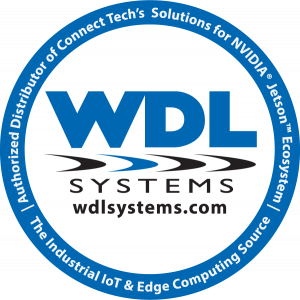Welcome Message from the Chairs
Welcome to the 2019 Do Good Robotics Symposium (DGRS)!
This inaugural Symposium brings together researchers, practitioners, and groups engaged in multidisciplinary and cross-cutting research and deployment of technologies for the benefit of society and the planet. It is quite apt that the first-ever Symposium should be held at the University of Maryland, College Park (UMCP), the nation’s first Do Good campus. The Symposium is organized by the UMCP’s Maryland Robotics Center within the Institute for Systems Research in collaboration with the Do Good Institute in the School of Public Policy.
One of the key motivations in organizing this Symposium is to provide a platform for exchanging and understanding the state of the art, and for sharing new ideas in the fields of robotics, automation, and AI across industry, academia, government, and non-profit domains for societal benefit. As such, attendees will notice that the Symposium centers around addressing concerns and identifying gaps stemming from technological perspectives and also those arising from regulation and governance issues surrounding emerging technologies. In the current era dominated by 24/7 news cycles and often questionable veracity of disseminated information coupled with skepticism of robotics and AI in the minds of the public, the Symposium program strives to strike a balance between reality and hype.
Over a period of two jam-packed days, DGRS’19 features 44 technical presentations as both oral and poster sessions arranged in a single-track format to maximize attendee participation. We have assembled six world-class keynote and invited speakers, a Do Good Robotics Start-up Competition that will showcase five finalists pitching their entrepreneurial ideas, and a panel discussion that will conclude the Symposium.
DGRS’19 is financially sponsored by the Maryland Robotics Center (including $5,000 for the Start-up Competition winners). We also gratefully acknowledge the support of WDL Systems/Connect Tech Inc. as a sponsor of the Symposium and the technical co-sponsorship of the IEEE Robotics and Automation Society.
Our thanks are due to the program committee members for shaping and publicizing the Symposium, the reviewers for providing feedback to the authors, and for helping us to put together an exciting program. We also thank our colleagues at the Maryland Robotics Center, Institute for Systems Research, and Do Good Institute for their assistance and timely efforts in making this event possible. We thank Prof. Darryll Pines, Dean of A. James Clark School of Engineering, for his encouragement in organizing the Symposium.
We hope that you enjoy the keynotes and invited talks, technical presentations, the start-up competition, the panel discussion, and the reception. It’s been a pleasure for the organizing committee to have planted this seed which we sincerely wish, with the help of the community, will allow for new partnerships and renewal of old friendships!
Miao Yu, General Chair
Raj Madhavan & Mumu Xu, Program Co-chairs
Call for Submissions
The inaugural 2019 Do Good Robotics Symposium (DGRS) will be held at the University of Maryland, College Park, the nation’s first Do Good Campus. UMD’s Do Good Campus works to equip and empower all students to apply their passions and ideas to make a positive impact in their communities and across the world. DGRS aims to bring together researchers, practitioners, and groups engaged in multidisciplinary and cross-cutting research and deployment of technologies for the benefit of the society and the planet.
Organized by the Maryland Robotics Center within the Institute for Systems Research, in collaboration with the Do Good Institute in the School of Public Policy at UMD, the Symposium will provide a platform for exchanging and understanding the state of the art, and for sharing new ideas in the fields of robotics, automation, and AI across industry, academia, government, and non-profit domains for societal benefit.
In the current era dominated by 24/7 news cycles and often questionable veracity of disseminated information coupled with skepticism of robotics and AI in the minds of the public, the Symposium will also consider controversial topics via presentations and panel discussions involving experts and audience members. Some of the topics within the purview of the Symposium range from ethical design and deployment of technologies to autonomous systems to applications of self-driving cars/trucks, aerial vehicles, and their implications on the existing workforce.
Topic areas include, but are not limited to:
- Robotics/AI research, development and applications in the following domains:
- Manufacturing including logistics and human-robot interaction systems
- Service and domestic
- Collaborative and cooperative robot systems
- Human-centered design and resulting interactions and relationships
- Intelligent transportation systems and assisted-driving
- Hazardous environments (e.g. nuclear site monitoring and hazardous waste cleanup)
- Healthcare including rehabilitation, patient care, medical, surgical devices and systems
- Disaster preparedness, response, and recovery efforts (including search, rescue,firefighting, casualty assessment, and victim revival and extraction during floods, landslides, and earthquakes)
- Agriculture and aquaculture
- Demining
- The role of academia and industry in shaping the design and use of robotics and AI systems
- Government regulations and technology-policy considerations
- Ethical design of robots and autonomous systems
- The role of NGOs/NPOs and funding agencies in deployment and sustainability
- Socio-economic, cultural, political, and environmental factors in developing and developed economies
- Privacy, safety, and security issues
- Education, reskilling, and training of next-generation workforce
A good mix of practitioners, faculty, graduate students involved in robotics and AI for societal good and technology policy, governance and regulation of emerging technologies from industry, academia, government, think tanks, and non-profit domains are expected to attend.
Technical Co-Sponsors
Sponsors






